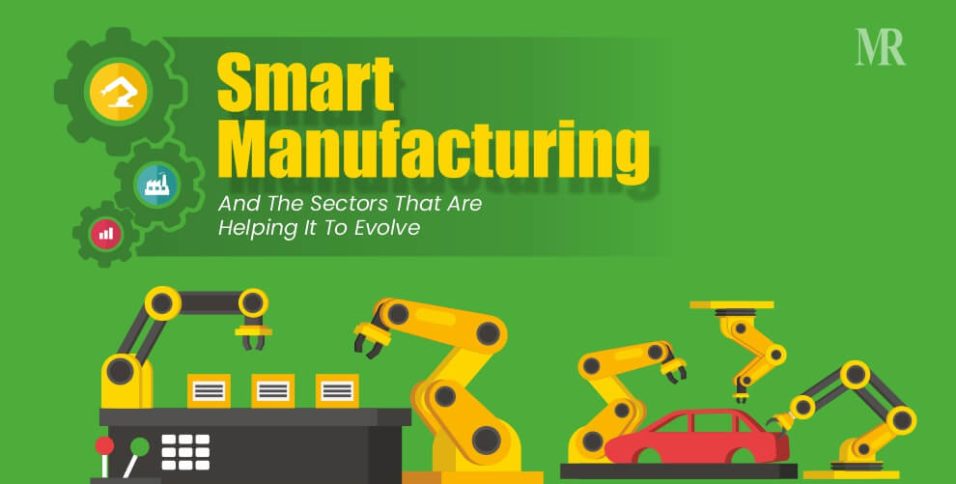Smart Manufacturing is a process that is fully-integrated, collaborative manufacturing systems that respond in real-time to meet changing demands and conditions in the factory, in the supply network, and in customer needs.
Though Smart manufacturing is a relatively new concept and not easy to directly infuse into the existing production procedures. It is a mix of different modern technologies combined together to improve the manufacturing process, but it needs to be implemented correctly first. Smart Manufacturing helps to improve the whole production process and eventually increase the profits of the company. This powerful process allows organizations to recognize new possibilities for automating operations and utilize data analytics to deliver better manufacturing outcomes.
Modern Technologies Making Manufacturing ‘Smarter’
The concept of adopting and implementing a smart manufacturing solution can be complicated sometimes. The fast-paced technological changes and trends have moved toward a more receptive, adjustable production system almost essential for manufacturers who wish to either remain competitive or get ahead of the competition. Big gains only come if the think tank broadens its capabilities and consider the possibilities, with small with manageable components, and scaling quickly to grow the operations, the promise, and benefits of the smart manufacturing can be realized. The article will elaborately describe the concept of smart manufacturing and how it is changing the industries with high level of efficiency by using modern technologies.
- Artificial Intelligence: The manufacturing sector is quite forward when it comes to adopting new technology that can enhance the process of manufacturing. AI is one such technology which is helping the industry to keep a check on inventory and avoid the unnecessary cost in the process of turning raw material into finished goods.
- Blockchain: The technology of blockchain is primarily used for financial transactions. Companies are looking to implement it in manufacturing to record each and every action. This will help the companies to see where they are lacking or going wrong by tapping into the log. Though the concept of blockchain in manufacturing is still in conceptual and testing stages, in the future we might see the technology evolve and help the manufacturing industry in its growth.
- Industrial Robotics: Smart robotics changing the manufacturing industry rapidly. These smart robots can do different tasks at a brisk pace. This means better production rates and lesser turnaround time which saves time, money and resources.
- Cloud Computing: Manufacturing is data-driven, Cloud computing enabling manufacturers to innovate, reduce costs of production, and increase their capacity. All these will eventually help the company to get an edge over the competition.
- 3D Printing: Any technology that has made manufacturing easier is 3D printing. It is easy to use and less time consuming than the traditional manufacturing process. It includes advanced level designing that makes finished products nearly perfect.
- Internet of Things: Smart manufacturing also uses the Internet of Things (IoT). IoT gives real-time insight into the production process and implementation involves the integration of sensors in manufacturing to collect data related to operation and performance. This information is used to improve the production process and also enhance the skills of the workforce that is involved in it.
Human Resources and its contribution to Smart Manufacturing
Human Resources are important factors in the success of any organization. Human capital management in Smart Manufacturing provides workers with defined and regularly communicated performance expectations. The sole aim of such evaluation is encouraging innovation and assisting constant progress. In Smart Manufacturing, human capital management is looked as a method for organization staffing that rates workers as assets. Human capital acts as a stimulus to increase productivity in manufacturing. Smart Manufacturing cannot work if human capital is taken out of it with the necessary skills, knowledge, and abilities. The success or failure of it relies fully on how human capital helps in its success and productivity.
Supply Chain Management as an Extension of Smart Manufacturing
Supply chains require getting away from forecast and adopting the demand-driven approach. Forecasts can be inaccurate sometimes. Companies cannot only depend on historic sales patterns, but also throw in current market conditions and seasonality, and hope for the best. Companies require to increase the demand and the ultimate goal should be the maximization of the profit. Supply Chain Management picks up where manufacturing ends and its role is to distribute the product in different markets as per the segmentation. This can be done by the use of the same disruptive technologies that were used in smart manufacturing.
Smart Manufacturing is supported by Government through Industrial Incentives
Government around the world is supporting innovation in manufacturing as it is an important part of the government agenda in many countries. It creates jobs, technological innovation, and supports economic activities in the country. One of the ways that the Government stimulates manufacturing is through research and development programs. The authorities collaborate with industry experts and support them with incentives for innovation in manufacturing. Research and development activity is important because economies that have consistent development in technology bound to have high levels of economic growth.
Smart Manufacturing is changing the process of manufacturing for better. Companies that implemented the technique nudged ahead of the competition. The inclusion of Smart Manufacturing can improve the design-to-manufacturing process and help in creating highly distinguished, cheaper and competitive products that are needed for the market. It is a strong disruptive force with the capacity to change the current competitive outlook and produce new market leaders. Companies that are slow to embrace new technologies and processes might not get a competitive edge.





